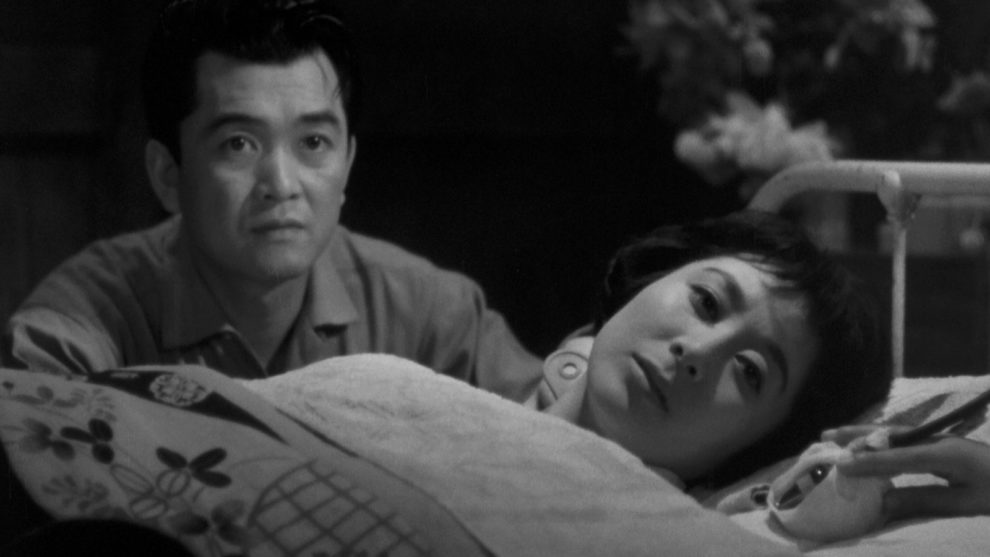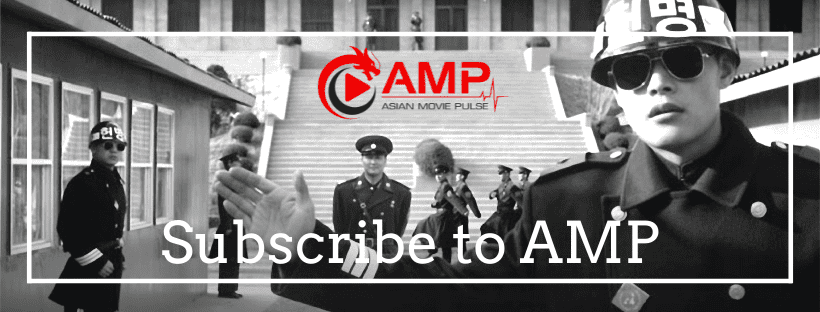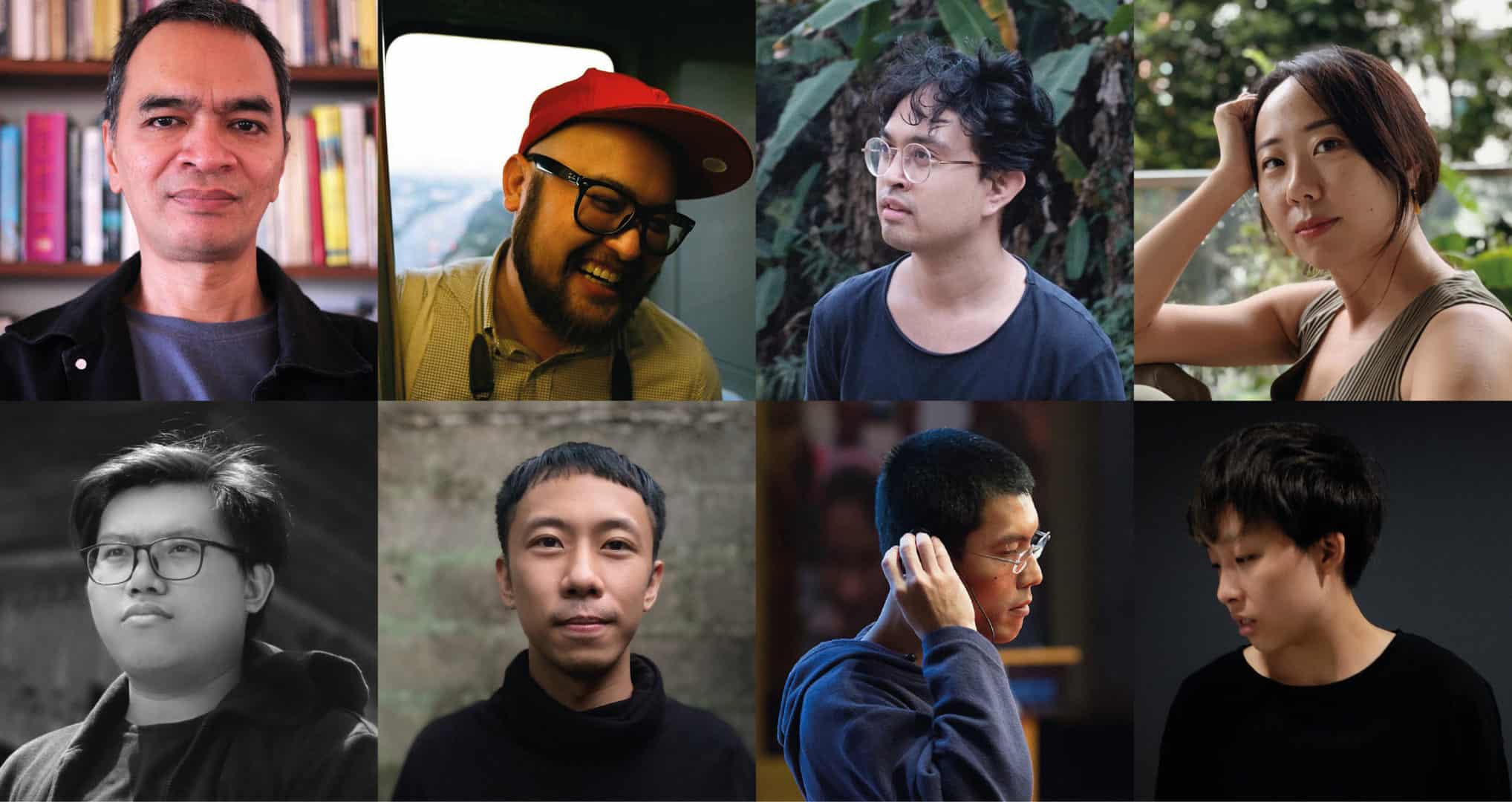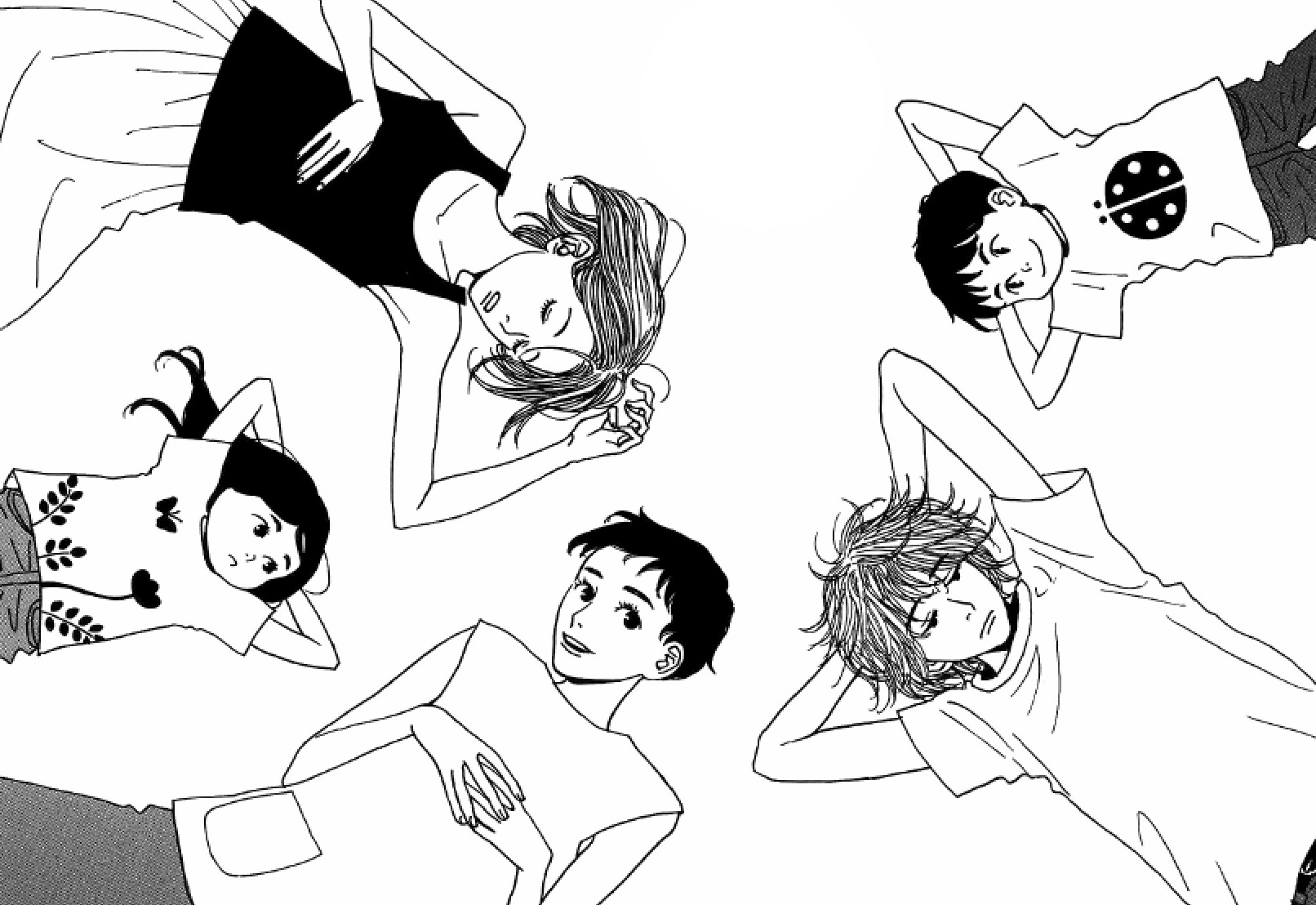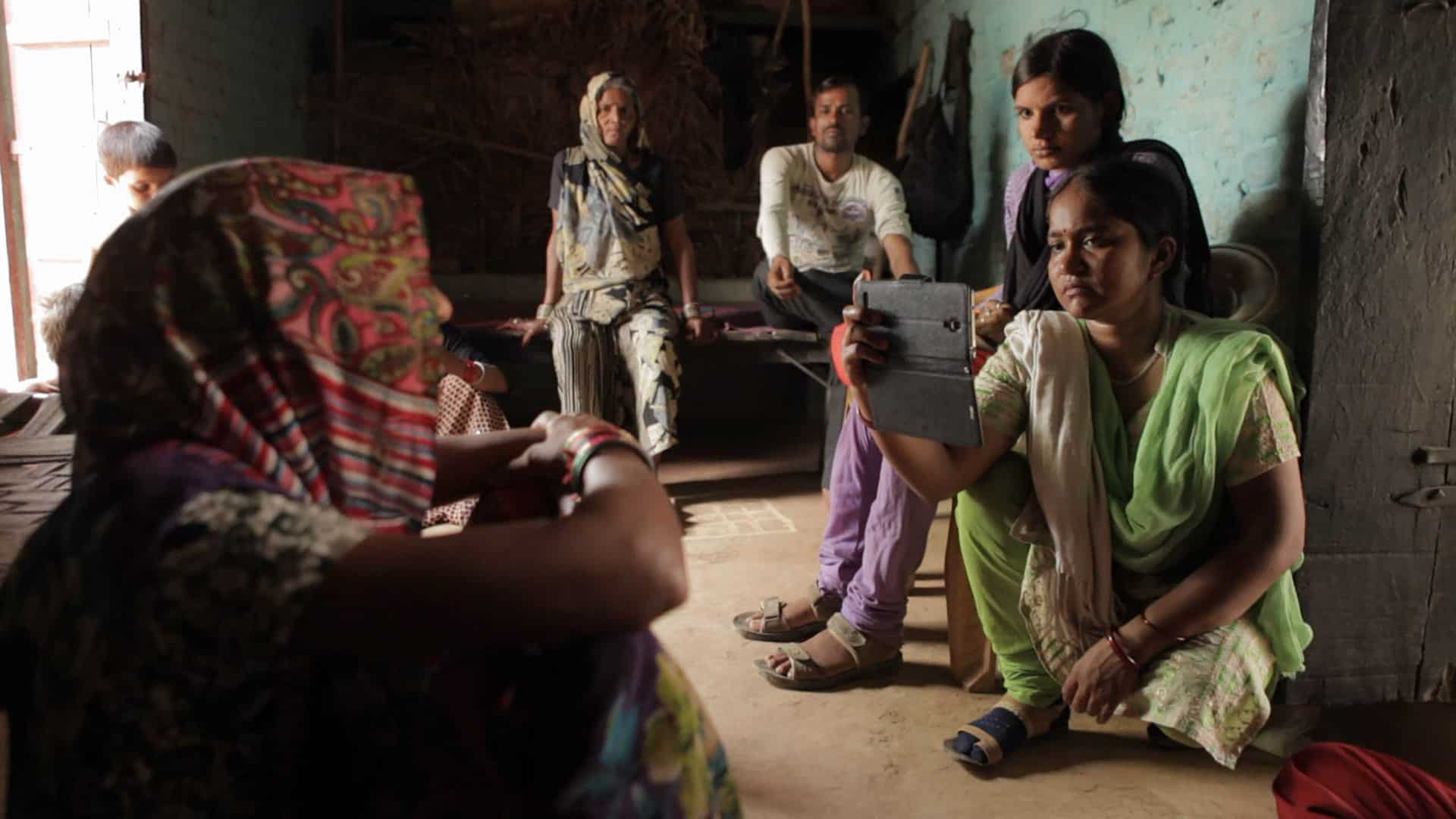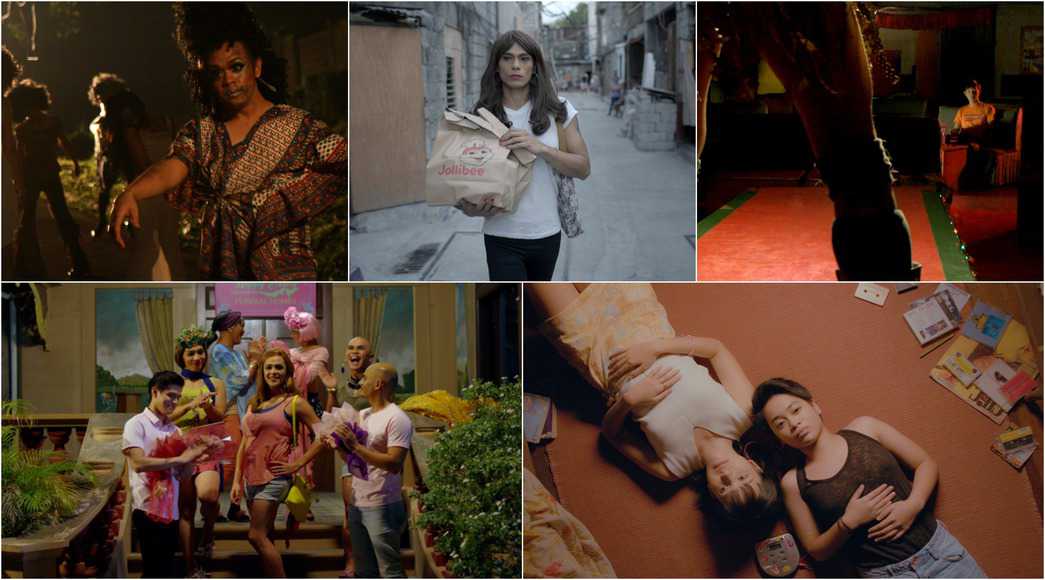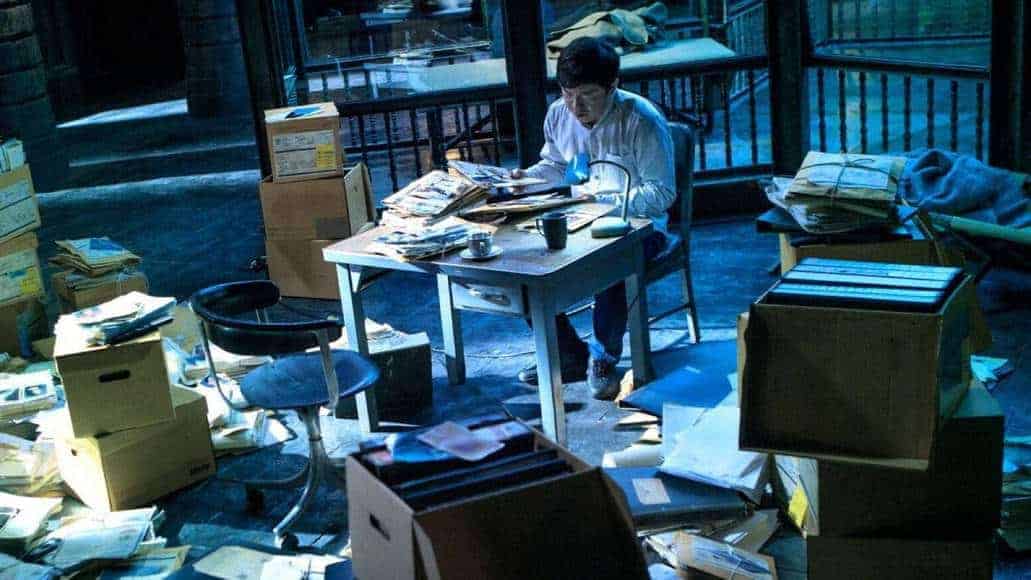After her first two features as a director, “Love Letter” and “The Moon Has Risen”, actress Kinuyo Tanaka, best known for her roles in Kenji Mizoguchi's “Ugetsu” and “Life of Oharu”, would continue her exploration of femininity, especially within focus of the Japanese society and tje traditional concepts of sexuality and marriage. Based on the life and works of Japanese poetess Fumiko Nakajo, “The Forever Woman” or “The Eternal Breasts”, which it was also called, would cement her status as someone with talents before and behind the camera. While Tanaka is mostly known for being an actress, current retrospectives focusing on her directing career shed some light onto this aspect of her life, showing a person well aware of the contradictions within the traditions of her home country, while also following paths which might constitute some kind of escape from these ideas.
“Forever a Woman” is screening at the 11th SDAFF Spring Showcase
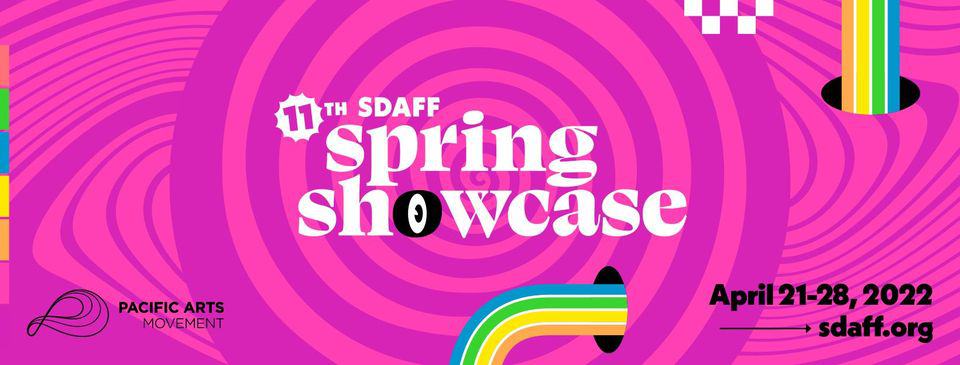
For quite some time, Fumiko (Yumeji Tsukioka) is dissatisfied with her marriage. After being let go from his job, her husband has grown weary of her company, complaining about what he perceives as constant nagging about his attempts of getting another job, while he spends most of his days with other women and drinking. Apart from her two children, the regular meetings with a group of writers are sources of happiness for Fumiko, who has also begun writing poetry, constantly encouraged by Takashi Hori (Masayuki Mori), also a writer and a tutor, wanting to nurture her talent for subjects such as marriage as well as her use of the poetic form.
Upon catching her husband with another woman, she files for divorce and begins a life in the city nearby, trying her best of being a mother and a poet, never wanting to be married ever again, despite her own mother arguing against it. While she struggles with this new life, her poetry finds new admirers and some of her works are even published, garnering her even more readers, with some critics also taking notice of this new talent. However, as she is diagnosed with breast cancer and has to undergo treatment, she finds herself in another type of conflict, thinking her newfound fame is more due to her illness and her divorce and has very little to do with her talent.
When it comes to the subject of Kinuyo Tanaka's career as a director, there is an obvious parallel between her real life and the characters her works portray. A protagonist choosing a life outside of society's expectations of her, as a mother and a woman in general, is perhaps in some way connected to Tanaka, who was only the second female director in Japan and had to overcome many obstacles before she could even make her debut with “Love Letter”, most notably, Kenji Mizoguchi's objection. With this in mind, you need to perceive “Forever a Woman” not just in terms of genre, but also as a piece opposing these views which essentially get in Fumiko's way of living the kind of life she wants after the traditional way has failed her. Even by today's standards, this idea is quite interesting and holds a certain provocative potential considering Japan's very homogeneous, traditional society, albeit the execution itself often fails to really make use of it.
At the same time, “Forever a Woman” is an impressive show of skill, aesthetically and its terms of storytelling. In an approach which is reminiscent of the dramas of Yasujiro Ozu and Kenji Mizoguchi, especially in terms of framing a shot, the feature mirrors the conflict of the character, her drive to break free from conventions which imprison her while also being accepted as an artist. In her role as Fumiko, actress Yumeji Tsukioka, who would continue to collaborate with Tanaka on her next feature “Love Under a Crucifix”, gives an impressive performance as a woman discovering her talent, using it and fighting for the way she is perceived by a society clinging onto the same traditions, which have brought her nothing but unhappiness and frustration over the years. Her scenes with actor Ryoji Hayama, who plays the journalist ultimately assigned to write a series of articles about Fumiko the poet, are perhaps the strongest in the whole feature, emphasizing her struggle of not being presented as the “dying artist”, but instead as a writer in her own right.
“Forever a Woman” is a melodrama about a woman struggling with traditions and her newfound role as an artist, especially with the way she is being perceived. Kinuyo Tanaka directs a very solid drama with impressive performances and storytelling, but which ultimately fails to make full use of the controversial nature of its subject matter within the context of Japanese culture and society.


